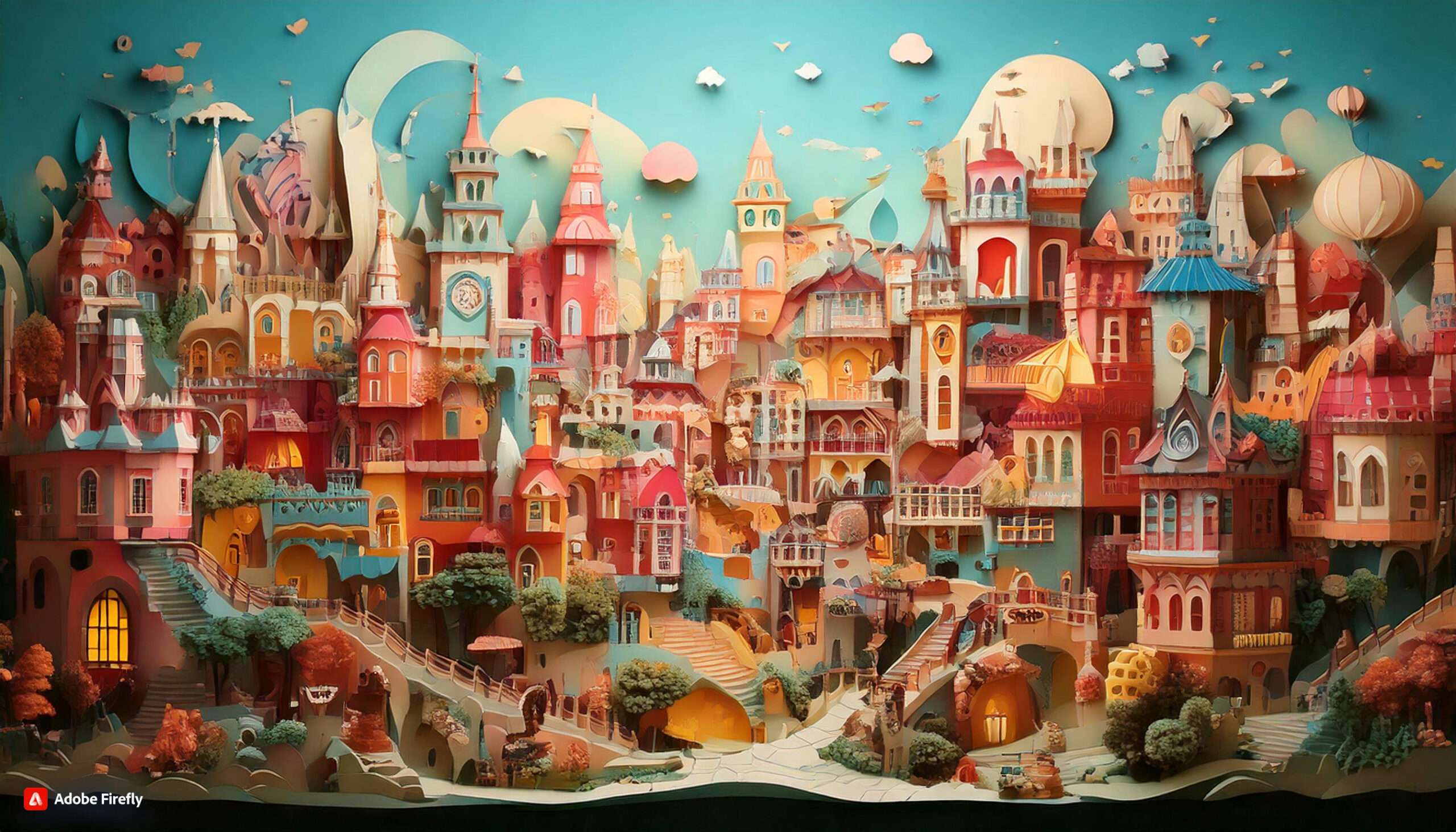From oral tales to printing press copies to the modern, ubiquitous e-book, stories—specifically fictions—have been part of the human tradition for generations. In their earliest iterations, fictions were not viewed as separate from mythology or history; they were part of it. And from its early roots, development of fiction began focusing on relatable people—characters—and possible—if not plausible—scenarios to incite, excite, and entice.
In his book, Sapiens: A Brief History of Humankind, Yuval Noah Harari, shared:
“Legends, myths, gods and religions appeared for the first time with the Cognitive Revolution. Many animals and human species could previously say, ‘Careful! A lion!’ Thanks to the Cognitive Revolution, Homo sapiens acquired the ability to say, ‘The lion is the guardian spirit of our tribe.’ This ability to speak about fictions is the most unique feature of Sapiens language.”
Fiction may be a unique feature of human communication, which is fascinating on its own. But why do we still look to fictions? What do they do for us in the modern age? Why does fiction matter? And what considerations must go into crafting culturally honest fictions?

Fiction readers do hard things without risk
Think of an exciting fiction you’ve read, maybe a crime thriller in which the protagonist was a detective, or a murder mystery that involved the heiress of a well-to-do family, or a nomadic forager traversing unknown territory. Most readers won’t identify directly with the protagonists of those fictions (unless, of course, they are detectives or wealthy heiresses or nomads), but readers get to experience, for approximately 350 pages, what life could be like if they walked in the protagonist’s proverbial shoes.
Each one of us is born under circumstances that we didn’t choose and cannot change, or that can be difficult to change. But writing and reading fictions allows us to experience all the things we wouldn’t otherwise get to experience, to connect with folks we wouldn’t otherwise meet, and to learn lessons we may not otherwise learn.
Through fiction, readers get to see the inner workings of police procedure or revel in the grandeur of a family estate or explore a new world and the creatures living in it. They get to track a killer or hunt for clues, unravel motives, and solve complex cases—but they do it from a safe distance. Fiction readers get to do hard things, new things, without the risk of failure or true risk of loss.
Except the loss, that is, of finishing a riveting read.
Post-book depression, anyone? Just me?
Moving on . . .
Fiction is a steward of the imagination
Have you ever come across a passage in a fiction that seemed to reach inside your skin and speak to your inner soul? I mean, didn’t you picture yourself riding the train with Jacob in Water For Elephants, or stroking a finger along a sculpture in the ice garden in The Night Circus?
Beyond the risk (or lack thereof) of reading fiction, there lies a deeper connection between the reader and their imagination, the well of creativity that exists inside each of us. We like to imagine new worlds, new situations, meet new people, to give in to our inner children and alight our soul fires. Complex human language began with fictions, and the very human love of fiction persists today.
Most readers and writers have favorite novels that get to the very core of who they are in all their whimsical glory. In Sapiens, Harari shared: “Homo sapiens conquered the world thanks above all to its unique language.” A language that spoke fictions into existence, nonetheless, and laid the groundwork to develop all of what we know today as “modern civilized society.” A language that made possible the novels we read and the people, places, and ideas we read about.
Fiction communicates the imagination, the what-ifs, the fantasy, the ideal. It communicates the hope of creation at its base form, regardless of the content of the fiction itself. Because when we read and write fiction, we create.
And when we create graphic mental simulations of sights, sounds, smells, tastes, textures, and scenarios, a veritable wardrobe of experience opens up for our inner children to walk through and dress themselves, just like the Pevensie children walked through the wardrobe to Narnia.
Fiction leads to emotional intelligence
If someone asks whether you can be properly moved by something that isn’t real, many of us would be quick to say ‘no.’ After all, we’re (mostly) rational people, aren’t we? We’ve put away the bogeymen of our childhoods, dispelled the monsters from our closets. We no longer spend time with our imaginary friends, or the ghosts that haunt our peripheries.
But fiction tests this bit of rationality, especially when considering that the structure of our society alone, from organized religion to the banking system, is fiction, albeit widely accepted cultural fiction.
To really understand a good work of fiction, readers must be moved by the irrational—fake people and fake circumstances, as examples—through rational means, real emotions like empathy and sympathy, among others. To do this, a good work of fiction allows readers to connect with characters and see the world as the characters see it, to buy into the characters’ journeys, to live in their stories.
And there have been studies done on the connection between fiction and emotional intelligence, which confirm this link. Art Markman, Ph.D. was quoted in an article for Ladders when he shared, “By showing you the world through the eyes of other people, literature can give you a window into others’ thoughts or feelings.” And because we can view the world through another’s eyes, we learn to empathize with the other, even the fictional other.
I mean, I’m not the only reader who wept during The Fault In Our Stars but wasn’t battling cancer or recoiled while reading Shutter Island despite never having been imprisoned.
At a time when us/them narratives run rampant, learning to understand and empathize with the other, to stop thinking of the other as “them” and accept the other as one of “us” is a net social good, and one easily promoted through fiction.
Cultural considerations for fiction
Fiction is a vast term encompassing everything from contemporary works to fantastic space operas and beyond. As such, there are many considerations when crafting well-wrought fiction, but the big consideration easily missed is in the sociological and cultural realities of folks living differently than we do in the 21st century. For us digital-age humans, especially for those of us writing from within our first-world homes, there are many facets of reality we recognize as ‘fact’ that are nothing more than culturally accepted fictions.
Laws and the justice system, for example, provide a framework for legal proceedings, but if nobody believed in the fictional framework of ‘the justice system,’ it would crumble, fast. In the aforementioned book, Harari wrote:
“The heated debates about Homo sapiens’ ‘natural way of life’ miss the main point. Ever since the Cognitive Revolution, there hasn’t been a single natural way of life for Sapiens. There are only cultural choices, from among a bewildering palette of possibilities.”
Bewildering, indeed, given that people accept different fictions all over the globe and have different reactions to those fictions and customs they don’t understand or otherwise haven’t accepted, yet. And we must be able to both recognize and put away our culturally ingrained biases to write the other into our fictions.
When writing dystopian/utopian fictions, fictions set in different times or places in the world, even fiction involving other planets and species, don’t forget to research (or construct, where necessary; we can’t very well purchase a history book about the people who inhabit a specific planet within the Andromeda galaxy.) history, including biology, sociology, and anthropology for interesting tidbits.
Here are a few wild cultural tidbits based on accepted fictions that may get your noodler churning:
- To the early nomadic forager, the agriculturalist who builds a permanent home in which they then eat, sleep, and poop may be viewed as a disease carrier.
- Ancient patriarchal cultures (and a few modern ones) deny the existence of women’s rights. Women are their husbands’ (or their fathers’) properties.
- Some cultures deal with criminals via the penal system, using prison or other detainment strategies. Some deal with criminals via public shaming.
- In many countries and cultures, the caste system is alive and well in practice, even if it’s not legally binding. The poor stay poor; the rich, rich.
- In some areas of the world, past and present, it is remarkably offensive to tip someone, even if you feel they’ve provided exceptional service.
- Some cultural systems keep government from interfering with religious practices. For others, religious disruption is a political strategy.
- In some Christian areas, working at all on Sundays, even putting out the wash to dry on a line, will make you a public enemy.
- In some cultures, standing really close together — smell-your-breath distance — is the norm for conversation.
When writing fictions and fictional characters, keep in mind that the language in every culture depends heavily on its shared values, day-to-day practices, and social and personal obligations. Do your research, of course, and when you’re ready to test whether your well-researched fiction reads as culturally appropriate, working with a sensitivity reader may provide the expert review you need to make sure your work is ready for readers.
So, why does fiction matter in modern human culture? It would be easier to provide all the reasons fiction doesn’t matter.
Spoiler alert: There aren’t any.
Happy editing and writing!
♥ Fal
P.S. Have a favorite resource on writing the other? Share below and let me know what other topics you’d like to read about.
Prefer video?
Come hang with me on the MetaStellar channel:

Fallon Clark is the book pal who helps you tell your story in your words and voice using editorial, coaching, writing, and project management expertise for revision assistance, one-on-one guidance, and ghostwriting for development. Her writing has been published in Flash Fiction Magazine. Check out her website, FallonClark.com, or connect with her on LinkedIn or Substack.

